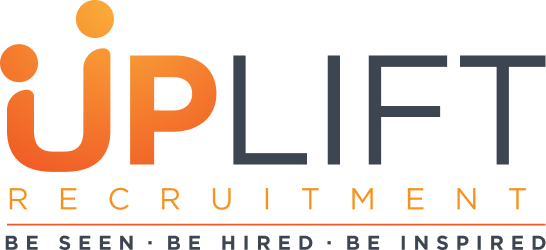
Conquering Fear: How to Feel Confident in the Face of a Career Change
Making a career change can be a daunting prospect, especially when fear starts to creep in. However, with the right mindset and strategies, you can overcome your fears and successfully transition into a new professional path or just a new role. We suggest using author Ryan Berman’s, three steps for overcoming fear and resistance in life when processing a career change. Berman says you can “unlock courage by acquiring knowledge, building faith, and taking action.” In this article, we will explore some key steps to help you “unlock courage” and navigate a career change with confidence.
 First and foremost, it’s important to recognize the need for change. Take a moment to acknowledge your desire for a career change and understand the reasons behind it. Reflect on your current situation and identify what aspects are unsatisfying or no longer align with your goals. Embrace the notion that change is an opportunity for growth and personal development. (Read our blog post, 6 things to know about making a career change to learn what to expect.)
First and foremost, it’s important to recognize the need for change. Take a moment to acknowledge your desire for a career change and understand the reasons behind it. Reflect on your current situation and identify what aspects are unsatisfying or no longer align with your goals. Embrace the notion that change is an opportunity for growth and personal development. (Read our blog post, 6 things to know about making a career change to learn what to expect.)
Once you’ve recognized the need for change, it’s time to define your new career path. Research and explore different industries, roles, and opportunities that align with your interests, skills, and values. Seek advice from professionals in the field you’re considering or engage with a career coach to gain insights and clarity. Set clear goals and create a roadmap for your transition, including specific steps and milestones.
Developing a transition plan is crucial for a successful career change. Evaluate the skills and experience required for your desired career path. Identify any gaps in your current skill set and devise a plan to acquire or enhance those skills. Consider pursuing further education, certifications, or attending workshops and networking events to broaden your knowledge and expand your professional network.
Fear and uncertainty often go hand in hand with career changes. It’s important to acknowledge and address your fears and concerns head-on. Break down the transition process into smaller, manageable steps to reduce overwhelm. Develop strategies to mitigate risks and create a safety net, such as building a financial cushion or seeking part-time or freelance opportunities during the transition period. Work on developing a growth mindset, that way you’ll have faith that you can learn and grow to meet big goals along the way.
 Building resilience during a career change can go beyond practical strategies. You should also strengthen your mental fortitude. Engaging in practices such as breathwork and ice baths can help you develop resilience and cope with the mental challenges that may arise. Breathwork techniques, such as deep diaphragmatic breathing or mindfulness meditation, can calm your mind, reduce anxiety, and enhance your ability to adapt to change. Similarly, cold exposure through activities like ice baths or cold showers can train your mind to embrace discomfort, build mental toughness, and increase your resilience in the face of challenges. By incorporating these mental challenges into your routine, you can cultivate a resilient mindset that supports you throughout your career change journey.
Building resilience during a career change can go beyond practical strategies. You should also strengthen your mental fortitude. Engaging in practices such as breathwork and ice baths can help you develop resilience and cope with the mental challenges that may arise. Breathwork techniques, such as deep diaphragmatic breathing or mindfulness meditation, can calm your mind, reduce anxiety, and enhance your ability to adapt to change. Similarly, cold exposure through activities like ice baths or cold showers can train your mind to embrace discomfort, build mental toughness, and increase your resilience in the face of challenges. By incorporating these mental challenges into your routine, you can cultivate a resilient mindset that supports you throughout your career change journey.
Seeking support and guidance can make a significant difference in navigating a career change. Surround yourself with a supportive network of friends, family, and mentors who can provide encouragement and advice. Engage with professional communities, attend industry events, and connect with individuals who have successfully made similar career changes. Consider partnering with a recruitment firm specialising in your target industry, like our boutique recruitment firm in Sydney, to access valuable resources, job opportunities, and guidance tailored to your specific career goals.
By embracing change, defining your new career path, developing a transition plan, overcoming fear, and seeking support, you can navigate a career change with confidence. Remember that it’s normal to experience some uncertainty along the way, but by staying focused and resilient, you can unlock new opportunities and achieve professional fulfilment in your chosen path.
